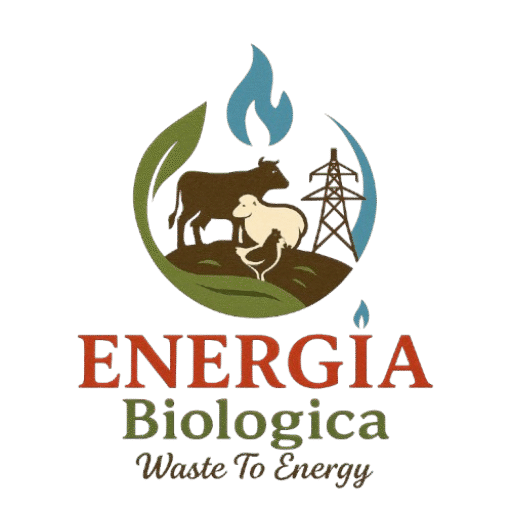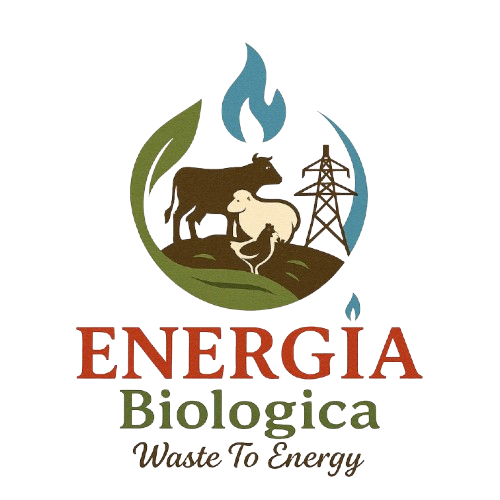The Smart Hub: Integrated Industrial Parks Powered by Biogas in Nigeria
Nigeria’s industrial landscape is poised for a significant transformation. Across the nation, industrial parks and clusters are emerging as vital engines for economic growth, job creation, and technological advancement. However, a persistent challenge remains: securing a reliable, affordable, and sustainable energy supply. Frequent power outages and the high cost of diesel generators continue to impede productivity and inflate operational expenses for businesses. Simultaneously, industries often generate substantial organic waste, creating disposal headaches and environmental concerns. What if these challenges could be turned into opportunities, with waste becoming the very fuel for industrial prosperity?
This is the vision behind integrated industrial parks powered by biogas – smart hubs where waste from diverse sources is converted into reliable, locally-generated clean energy. This innovative approach offers a robust solution to Nigeria’s energy deficit, attracts investment, and fosters a truly circular economy within the industrial sector. Energia Biologica Limited, as Nigeria’s pioneering biogas industry facilitator, is dedicated to making this vision a reality. We champion a partnership-driven, integrative approach, bringing together the crucial elements – finance, technology, construction, and operations partners – to develop bankable, impactful biogas initiatives that serve as the energy backbone of these next-generation industrial parks. Our mission is to catalyse sustainable biogas development in Nigeria, driving waste-to-wealth transformation on an industrial scale.
The Synergy of Co-location: How It Works
The concept of an integrated industrial park powered by biogas hinges on the strategic co-location of industries with a centralized biogas plant. This proximity creates a symbiotic relationship where waste streams from various industrial tenants—such as food processing, breweries, abattoirs, textiles (with organic waste components), and even nearby agricultural operations—are channelled to a dedicated anaerobic digestion facility.
Here’s how this synergy translates into a smart hub:
- Feedstock Aggregation: Instead of each industry managing its waste individually, a central biogas plant can efficiently collect and process diverse organic feedstocks. For example, a food processing plant might provide fruit and vegetable waste, a brewery could offer spent grains, and a nearby abattoir contributes animal waste. This collective approach ensures a consistent and sufficient volume of feedstock for optimal biogas production. States like Ogun (with its numerous industries and agricultural base) and Kano (with its vast abattoirs and agro-industries) are prime candidates for such integrated hubs.
- On-Site Energy Generation: The biogas produced is then utilized on-site, typically to generate electricity and heat using combined heat and power (CHP) units. This power is fed directly into the industrial park’s microgrid, providing a stable and predictable energy supply, independent of the often-unreliable national grid. The thermal energy generated can also be used for industrial processes requiring heat, such as drying, sterilization, or heating water.
- Resource Cycling: The digestate, a nutrient-rich byproduct of the biogas process, can be used as organic fertilizer for agricultural operations within or near the park, or even processed into pellets for commercial sale. This closes the loop, turning industrial waste into valuable agricultural inputs, further enhancing the park’s sustainability profile and contributing to Nigeria’s circular economy goals.
- Shared Infrastructure and Cost Savings: By sharing a common waste management and energy generation infrastructure, individual companies within the park benefit from economies of scale. This significantly reduces their individual capital expenditure on energy systems and waste disposal, leading to lower operating costs and improved competitiveness.
This model transforms industrial parks into self-sufficient ecosystems, where resource efficiency and sustainability are built into their very foundation.
Unlocking Economic Multipliers and Investment Potential
The advantages of integrated industrial parks powered by biogas extend far beyond mere energy provision; they act as powerful economic multipliers, attracting investment and fostering sustainable growth.
- Reliable and Affordable Energy: For industrial park developers and operators, offering a guaranteed supply of clean, reliable, and competitively priced electricity is a significant magnet for prospective tenants. Businesses, particularly those in energy-intensive sectors like manufacturing and processing, are constantly seeking stable power to ensure uninterrupted operations and control costs. A biogas-powered park provides this critical differentiator. This directly addresses one of the biggest bottlenecks for industrial growth in Nigeria.
- Reduced Operational Costs for Industries: Tenants within these parks will experience substantial reductions in energy expenditure, as they rely less on costly diesel generators. For context, in many Nigerian industrial zones, diesel can account for a significant portion of a company’s operating budget. Switching to biogas offers a predictable and often lower-cost alternative, directly boosting profitability. Beyond energy, the reduced need for waste disposal services also contributes to cost savings.
- Attraction of Green Industries and FDI: The strong emphasis on sustainability and circular economy principles makes these parks attractive to environmentally conscious businesses and foreign direct investment (FDI) seeking to meet their own corporate sustainability goals. Nigeria’s commitment to renewable energy and sustainable development can be powerfully showcased through these integrated hubs.
- Job Creation: The development, construction, operation, and maintenance of biogas plants, along with the growth of attracted industries, create substantial employment opportunities. These range from skilled technical roles in plant operations to logistics, waste collection, and even agricultural roles for digestate utilization.
- Enhanced Competitiveness: Nigerian products manufactured in biogas-powered parks could gain a competitive edge in international markets, especially as global supply chains increasingly prioritize sustainability and low-carbon footprints. This aligns with global trends towards green manufacturing and responsible consumption.
These parks become vital engines for local economic development, providing stable employment, fostering innovation, and contributing to the overall industrialization agenda of Nigeria.
Energia Biologica’s Expertise in Realizing Smart Hubs
Building and operating successful integrated industrial parks powered by biogas is a complex undertaking that requires specialized expertise across multiple disciplines. This is precisely where Energia Biologica’s role as a strategic integrator becomes invaluable. Our partnership-driven approach ensures that all critical components are seamlessly brought together:
- Feasibility and Site Selection: We conduct rigorous assessments to identify optimal locations with abundant and consistent organic feedstock, such as close to large abattoirs, major food processing zones, or agricultural clusters in states like Lagos, Ogun, or Kano. This includes detailed feedstock analysis and energy demand profiling.
- Technology Integration: We work with leading global and local technology providers to select and integrate the most appropriate biogas technology for the specific feedstock and energy requirements of the industrial park. This ensures efficient anaerobic digestion and maximum energy output.
- Financial Structuring: Our team facilitates the necessary financing by connecting projects with investors, development banks, and green financing instruments, de-risking investments and ensuring project bankability.
- Construction and Project Management: We oversee the entire construction phase, ensuring adherence to international standards and timely project delivery.
- Operations and Maintenance: We establish robust operational frameworks to ensure the long-term efficiency, reliability, and profitability of the biogas plant, including training local personnel for sustainable operations.
This comprehensive, integrated approach minimizes risks for industrial park developers and tenants, allowing them to focus on their core business while benefiting from a resilient and sustainable energy supply. We are committed to accelerating Nigeria’s transition to a greener, more self-reliant industrial future.
The Future of Nigerian Industry is Sustainable
The concept of the smart hub, where integrated industrial parks are powered by biogas, represents a paradigm shift for Nigeria’s industrial growth. It offers a tangible solution to the nation’s energy security concerns, provides a sustainable waste management strategy, and creates a compelling value proposition for industrial investment. By transforming what was once a burden – industrial organic waste – into a powerful asset, these parks embody the true spirit of waste-to-energy and renewable energy Nigeria.
The opportunity for industrial park developers and operators is clear: differentiate your offering, attract premium tenants, reduce operational costs, and contribute meaningfully to Nigeria’s sustainable development goals. Energia Biologica is ready to partner with visionary stakeholders to unlock this immense potential.
Partner with Energia Biologica to access reliable, locally generated clean energy for your industrial operations.
Join us in building the smart, sustainable industrial future of Nigeria, one powered by its own resources.

